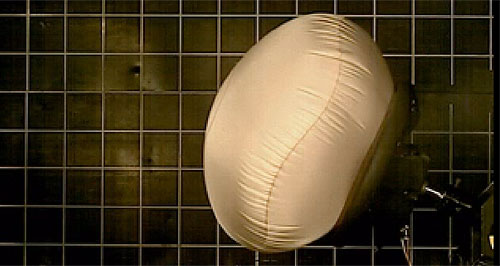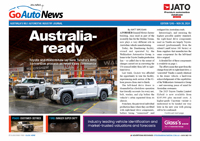Make / Model Search
News - General News - SafetyTakata airbag recall doubles in USNot quick: The Takata airbag debacle is not only costing motor companies big dollars but also Australian taxpayers, who have to foot the bill for the ACCC to make sure recall repairs are done. Another 35-40 million vehicles scooped up in US Takata airbag inflator recall5 May 2016 THE massive Takata airbag safety recall has more than doubled in the United States with an additional 35-40 million vehicles caught up, after recent tests uncovered the root cause of the ruptured inflators. A statement from the US National Highway Traffic Safety Administration (NHTSA) says it has issued airbag manufacturer Takata an order for the latest round of recalls, which are in addition to the 28.8 million vehicles that have already been recalled. The Takata inflater issue has swept up a number of major global car-makers including General Motors, Ford, Daimler, BMW, Honda, Mitsubishi, Mazda, Subaru, Nissan, Fiat Chrysler Automobiles and Toyota. NHTSA said its independent expert had reviewed the findings of three independent investigations into the airbag ruptures and was able to confirm the root cause. “A combination of time, environmental moisture and fluctuating high temperatures contribute to the degradation of the ammonium nitrate propellant in the inflators. Such degradation can cause the propellant to burn too quickly, rupturing the inflator module and sending shrapnel through the air bag and into the vehicle occupants,” the NHTSA says. There have been no recorded incidents of injury or death in Australia as a result of the inflator issue, but 10 deaths and more than 100 injuries have been reported in the US. The recall will be rolled out in phases between now and December 2019 covering all Takata ammonium nitrate-based propellant driver and passenger frontal air bag inflators without a chemical drying agent (desiccant). NHTSA says there will be five recall phases that are prioritised by risk, the age of the inflators and exposure to high humidity and fluctuating high temperatures, that could accelerate the degradation of the propellant. NHTSA administrator Mark Rosekind said the timing of the recall should help ensure the safety of owners of the impacted vehicles. “The science clearly shows that these inflators become unsafe over time, faster when exposed to humidity and variations of temperature,” he said. “This recall schedule ensures the inflators will be recalled and replaced before they become dangerous, giving vehicle owners sufficient time to have them replaced before they pose a danger to vehicle occupants. NHTSA will continue to evaluate all available research and will act quickly to protect safety.” A report in Bloomberg quoted Takata chairman and chief executive officer Shigehisa Takada as saying that the company is planning to devote substantial resources into the safety recall. “This agreement with NHTSA is consistent with our desire to work with regulators and our auto-maker customers to develop long-term, orderly solutions to these important safety issues,” he said. “We will continue to dedicate significant resources to maximise recall completion rates.” GoAuto has contacted the car-makers that have previously been impacted by the recall in Australia, with Mitsubishi confirming that it was not aware of any impact to Australian vehicles. The airbag issue dates back to 2009, before ramping up to three million vehicles in 2013, while more vehicles were added in 2014, rising to 50 million worldwide in 2015.  Read more2nd of October 2015  More Mitsubishis caught up in Takata recallGlobal Takata airbag defect pulls in Australian Mitsubishi Lancer models21st of May 2015  Takata airbag recall hits 50 millionFaulty airbag issue tops 50 million as Takata forced to acknowledge faults in US |
Click to shareGeneral News articlesResearch General News Motor industry news |











Facebook Twitter Instagram